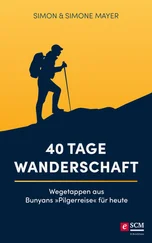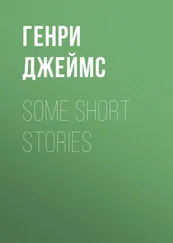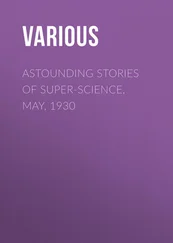“Ushakov,” Anna Glebovna said again. “Ushakov.”
Whispers hissed from the audience, legs swung, backsides fidgeted.
Dima’s cheeks began to burn; the rest of his body shuddered against the clammy studio air. Poor Mama.
“Now, Ushakov. Such an easy piece. Tok tok tok tok and let’s ride.” Anna Glebovna snapped her chubby fingers. “Look how many of you I have to get through.”
March. March. March, Dima pleaded with his nutro . He knew it; his fingers knew it. March now, avenge later.
“I’m ready,” he said. The clock’s minute hand rolled lazily to six. The second hand marched on without a care in the world. In the wrong tempo.
“Silence in the studio,” the producer commanded from behind the monitors. The audience held its breath. “Cameras rolling. Action!”
Fingers, head. “Sorry, do I have to say my name and age and what I’m playing again?”
“Cut! Cut! You don’t have to say your name again. You’ve already said those things very well, now you just have to play.”
Dima nodded.
“Silence in the studio. Rolling. Action!” Dima could only see the producer’s mustache moving.
He began to play. The green field. The soldiers. The sun in the silver sky.
— TaTaTatitati TaTa Tatitati Ta Ta Ta Ta Tatitatita tititata.
Drumroll avenged! He knew the piece. The musical footprints laid themselves out before him, and all he had to do was let his fingers run, the phrasing guided by the steady burn of his nutro. So easy. The way he’d done hundreds of times before: at home for his trembling mother and in front of Faina Grigorievna, while she filed her nails in a little white cloud.
— TaTaTatitati TaTa Tatitati Ta Ta Ta Ta Tatitatita tatatata …
The knees in identical navy-blue uniforms shoot up in unison to the chests shining with medals. Despite the heavy boots, the soldiers’ step is sharp and exact. They march in tight formation, yet they never (unlike Dima’s fingers) trip each other. Would the soldiers march through the field with medals on, though? They certainly weren’t as vain as Genka, who wanted everyone to know he was a hero even before he knew what heroic things they should do. Dima didn’t know either. When he suggested they apprehend the older boys who smoked and confiscate their cigarettes — thus avenging those whose clothes, or worse, had been ruined by cigarette burns — Genka rolled his eyes. Maybe Genka was afraid of the upperclassmen. It had been Dima’s idea to form the gang in the first place and name it after their favorite movie. And just because Genka was three months older and taller didn’t automatically make him the leader. Stop thinking about Genka.
Dima’s mind turned a blank page, his nutro sputtered. Not again, not again, please.
“Cut, for God’s sake!” the producer yelled. “Anna Glebovna!”
Anna Glebovna was already tottering toward Dima. The big hand of the clock was now halfway to the seventh minute. Only three minutes had passed. Already three minutes. He could’ve been done ages ago.
The parents and teachers started to whisper. He turned back to look. His mother sat hunched over, her eyes darting about the floor as if in search of an escape. She was like that at the school cafeteria, too. A mouse. Sometimes it took several moments for Dima to recognize her among her fellow white-coated lunch servers. And when he spotted her, he would quickly nod, but he wouldn’t come over.
She had stayed up late last night starching his performance outfit. His pants felt like iron. The collar of his shirt cut into his neck. If it weren’t for the yellow bow, he could pretend he was wearing a knight’s armor. Though the Uncatchable Avengers wouldn’t be so uncatchable in armor. Stop, he yelled to himself inside his head. Stop, stop, stop. He wished he could put knight’s armor on his thoughts. Poor Mama.
Faina Grigorievna sat stone-faced. She was the best teacher in the Magadan region, no, the best in the whole northeast, and everybody was afraid of her, even the other piano teachers. Non — piano teachers didn’t need to be afraid because, for her, other instruments didn’t even count as real instruments. She would kick him out now, Dima thought. His mother would cry, but he would sleep better at night. Eventually. His mother cried a lot, anyway.
Anna Glebovna banged on the piano’s raised lid, a black lacquered sail. Dima wished more than anything in the world to sail out of this tomb and into the bright spring day.
“Ushakov, gather your brains, would you? If I was your teacher…” Anna Glebovna looked in the direction of the audience. “Well, our esteemed Faina Grigorievna is here, of course. Don’t embarrass her, Ushakov. She hasn’t gotten that many of you left to pin her hopes on,” she said, her voice saccharine.
A hack, a hack.
He’d never had a problem with the march before. He’d practiced so hard he could sometimes hear the soldiers marching along his teeth and up his spinal cord, and through his ear canals. He could play the piece with his eyes closed or in the dark, as he’d done many times during electricity outages. He could play it from the middle. He could tap it. He could hum it, though he never did. Singing was for girls, not Avengers. He could play the right hand’s part with the left hand, and the left with the right.
Now he only had to play the march once.
“Silence in the studio!”
Anna Glebovna scuttled back to her chair. He’d show her.
“Cameras rolling. Action!”
Mind, mind, hands, mind. Dima felt Faina Grigorievna’s stare. He counted down from ten, breathing shallow breaths so the iron grip of his collar wouldn’t cut into his throat. These keys were so flawlessly white and shiny, unlike the keys on their home piano, which his mother had rescued from the arts college dorm. Some of those keys were chipped. At the far right of the high register several cigarette burns gaped, like craters from tiny hand grenades. Piano was always a battlefield — between fingers and tempo, pedal and sharps and flats, chords and staccato, fifth fingers and forte, first fingers and pianissimo, scales and laziness, nutro and Genka. And this was before Faina Grigorievna got involved.
The dumb policeman clock showed 12:09. At 12:10, Dima could be done. Then, he would think about what to do heroism-wise; maybe he could even get something accomplished while Genka was still at school.
Ready and … the field, the sun, the shiny knees. Or the medals. Shiny medals. High knees. He transferred the domes of his hands onto the keys.
— TaTaTatitati TaTa Tatitati Ta Ta Ta Ta Tatitatita tititata. (Whew.)
With the first mine avoided, Dima’s hands marched on toward freedom.
— TaTaTatitati TaTa Tatitati Ta Ta Ta Ta Tatitatita tititata.
Now the regiment comes upon a dark forest at the edge of the field.
— TuTuTurururu TuTu Turururu Tu Tu Tu Tu Tututututu roo roo roo.
The soldiers are stumbling over the crags and roots of the tall black trees. This was a stupid story. The only reason for the soldiers to march into a dark forest would be to fight a forest monster. He should’ve made up his own story instead of listening to Faina Grigorievna.
— TuTuTurururu …
Dima’s mind drifted back to all the things that had happened in Magadan in the past year. The teachers’ hunger strike. The gas explosion at the hospital. The three bank robberies. Of course: the mayor’s murder! The killer was never caught. And never would be, his mother insisted sadly. A whole marching army would scare the murderer further into hiding. The task required stealth, surprise. The huntsman would have to act incognito, someone the culprit could never expect. Someone like the Uncatchable Avengers! How did he and Genka not think of this earlier? They would be in the newspaper, on the evening news.
Читать дальше
Конец ознакомительного отрывка
Купить книгу












